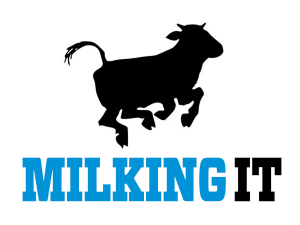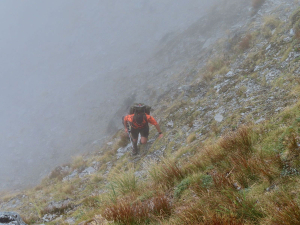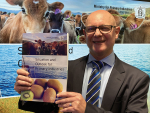Farmers in Australia are experimenting with adding seaweed to cattle feed in order to stop cows producing as much methane.
Methane — which is nearly 30 times stronger than carbon dioxide — is a gas produced by cows that is known to be harmful to the planet.
Scientists from Australia’s Commonwealth Scientific and Industrial Research Organisation (CSIRO) have created an additive made from red seaweed, known as FutureFeed.
Adding just a small amount of FutureFeed to the cow’s food is estimated to reduce methane production by as much as 80%.
The red seaweed grows naturally in the waters of Australia and is also now being farmed in a number of other countries.


















